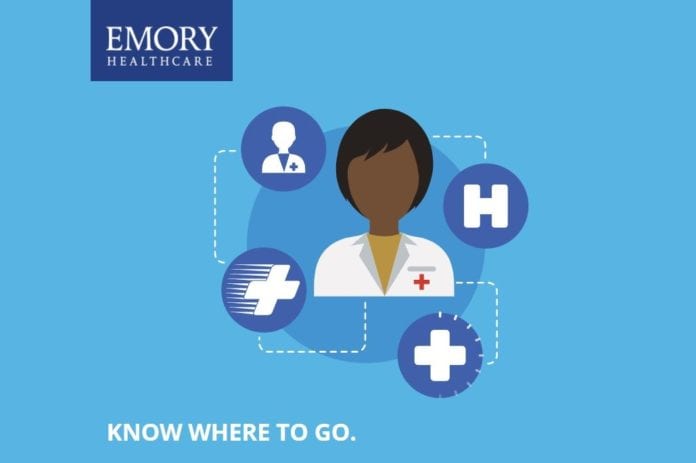There are many reasons you might consider scheduling an appointment with one of Emory Healthcare’s advanced practice providers, also known as APPs—whether you’re visiting for an annual checkup, not feeling well, or simply have a medical issue you’d like to discuss with a provider
What Is an APP?
Chances are, you’ve heard the term: advanced practice provider. But maybe you’re not sure who they are or what they do. Well, advanced practice providers can be nurse practitioners (NPs) or physician assistants (PAs). Both have extensive medical education and training.
“Nurse practitioners and physician assistants team up with our doctors to make sure you get excellent care—when you need it,” explains Marlis Dunlap, DNP, FNP-C, BC-ADM, chief of advanced practice providers for Emory at LaGrange. “At some Emory Healthcare locations, our APPs are responsible for their own schedule of patients. We see patients all day long, listen to their concerns, provide care and offer great health information.”
Watch to learn more about Emory Healthcare’s APP care model and treatment options:
How Do Advanced Practice Providers Care for You?
Both nurse practitioners and physician assistants can:
- Diagnose and treat medical conditions
- Prescribe medication
- Order tests and review results
- Help you manage chronic illnesses, such as diabetes, high blood pressure, heart disease and asthma
- Help you set goals to improve your health
- Offer practical advice about how to achieve your health goals
Advanced practice providers also perform on-call duty shifts to answer pressing health questions, even after regular office hours. When not providing direct patient care, APPs maintain health charts to keep your medical history up to date.





